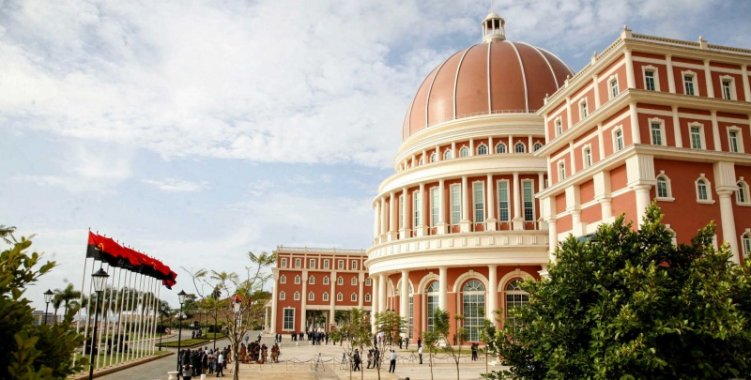The document was approved with 139 votes in favour of the Popular Movement for the Liberation of Angola (MPLA) and the National Front for the Liberation of Angola (FNLA), 50 votes against from the National Union for the Total Independence of Angola (UNITA) and the Broad Convergence for the Salvation of Angola - Electoral Coalition (CASA-CE) and seven abstentions from the Social Renewal Party and independent MPs.
The revised State Budget for 2020, with a cut of 15.7 percent compared to the current budget, will be financed by 45.5 percent of tax revenues and 54.5 percent through a financing plan that reflects the significant reduction in tax revenues, which contracted by nearly 30 percent compared to the current State Budget.
Among several recommendations, the draft resolution revises the budget allocations by bodies allocated in duplicate to the Ministry of Telecommunications and Information Technology and Industry and Trade, as well as removing from the public investment budget of the Presidency of the Republic the component of the project relating to the adaptation of the dental clinic in the amount of 745.4 million kwanzas, which should be allocated to the Ministry of Health in the Project to Combat Malaria, to the value of 2.2 billion kwanzas.
Members also recommended that, at this stage of covid-19, greater attention be paid to the creation of infrastructure supporting information and communication technologies so that citizens can carry out their teleworking and tele-classroom activities and allow for the relationship between families, and also that the budget appropriations for scientific research be increased, with priority for the new coronavirus pandemic.
In its explanation of vote, the MPLA parliamentary group justified its vote in favour by considering the arguments of reason behind the revision of the State Budget to be prudent and realistic.
The MPLA's parliamentary group believes that this budget sends a strong and clear message that "it is possible to turn the crisis into an opportunity to improve the quality of public spending, do more and better with less, manage resources more transparently, balance public accounts, put a firm bet on national production and boost the diversification of the economy".
The parliamentary representation of the FNLA considered that the current revised budget occurs under difficult circumstances, resulting from the pandemic that seriously affects the world economy, particularly that of Angola, and voted in favour because the national public interest should be in the first place.
Lucas Ngonda stressed that since the budget is an instrument of public policy for the well-being of the population and the fight against poverty, the FNLA decided to vote in favour of this revised state budget.
For his part, Maurílio Luiele, of the UNITA parliamentary group, said that the vote against was due to the fact that the document did not outline measures to transform Angola's economy in order to significantly reduce its dependence on oil, ensure macroeconomic stability and meet the needs arising from the health emergency imposed by the covid-19 pandemic.
"The proposed revision of the State Budget, however, does not reflect the executive's strategy to reverse the negative trend of the Angolan economy, which has been established for five years, with deep social implications evident in the increase in unemployment, especially among young people, and the increase in multidimensional poverty," stressed Maurílio Luiele.
For his part, Manuel Fernandes, deputy for the parliamentary benches of CASA-CE, considered that the law of this revised State Budget is transformed into a law of aggravation and relief of taxes, when they should only happen in the analysis of the laws that give body to the tax package.
"We would like to appeal to the executive to make the budgeting process more participatory among the actors of political, civil and other society, with a view to deepening the practice of participatory democracy, through combined management, through the participation of the direct population and improve the process of wealth distribution," he said.







